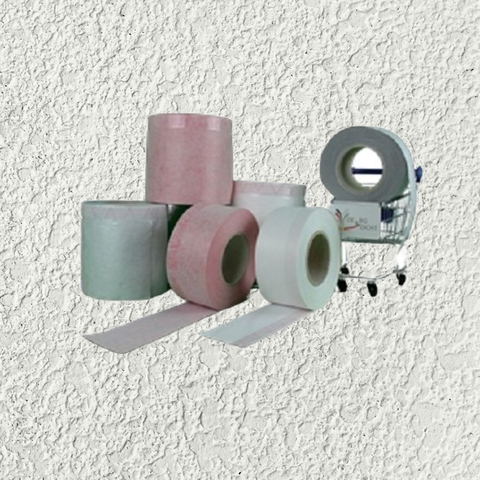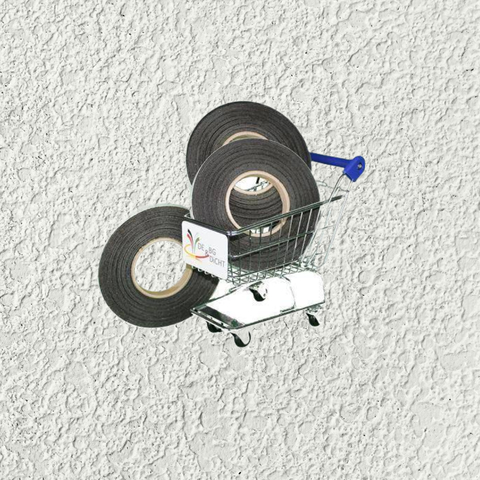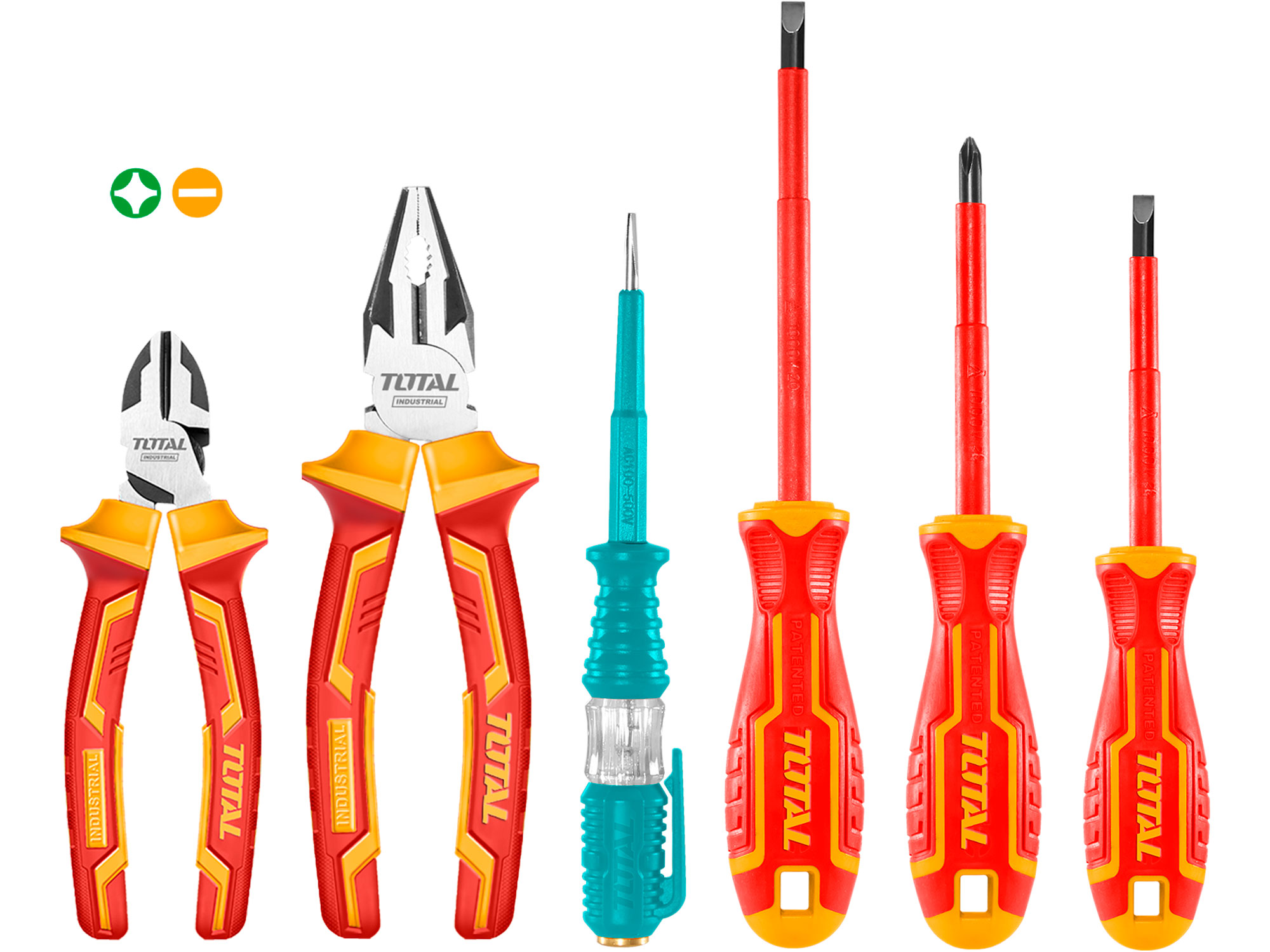The versatile use of silicone: an all-rounder for everyday life!
Silicone: An all-rounder for everyday life! The versatile use of silicone has taken the world by storm. It is a high-quality material that is used in numerous areas of everyday life. From the kitchen to the bathroom, from medicine to electronics - silicone is everywhere and always proves to be a reliable companion.
In the kitchen, for example, silicone is used for baking moulds, kitchen utensils and baking paper. Its incredible heat resistance and non-stick properties make it the ideal choice.
Silicone is indispensable in the bathroom in the form of seals, caulking and grout. It protects against moisture and mould and ensures a perfect seal.
Silicone has also taken on an important role in medicine. It is used for implants, medical devices and dressing materials.
The electronics industry also benefits from the advantages of the material. Silicone cables, seals and circuit boards ensure the efficient and safe use of electronic devices.
With its versatility and outstanding properties, silicone is conquering more and more industries and everyday objects. It is now indispensable and will continue to be used in various areas.
What is silicone?
Silicone is a synthetic polymer consisting of silicon, oxygen, carbon and hydrogen. This chemical compound has proven to be extremely versatile and is used in a wide range of applications. Silicones are not pure silicates, but special organic compounds that come in a variety of forms, from oils to gels to solid materials. The structure of silicone allows it to be both elastic and stable, making it ideal for numerous applications.
The production of silicone involves several steps, in which silicon dioxide is extracted from sand. This is then converted into silicone in a chemical process. The process is complex, but the end product is a material that is highly valued both in industry and in everyday life. By adapting the chemical structure, various properties of the silicone can be influenced, making it particularly adaptable for different areas of application.
In recent decades, the use of silicone has increased significantly as it is considered more environmentally friendly and safer than many traditional materials. It is resistant to high temperatures, chemicals and UV radiation, which explains its popularity in various industries. Silicone has established itself as an indispensable part of our lives and it is hard to imagine life without this versatile material.
The properties of silicone
The properties of silicone make it an outstanding material in many applications. One of the most remarkable properties is its heat resistance. Silicone can withstand temperatures from -60 °C to over 200 °C without losing its structure or function. This ability makes it ideal for use in the kitchen, where high temperatures are common.
Another important feature of silicone is its flexibility. It can be moulded into different shapes and easily returned to its original shape. This elasticity allows silicone to be used in a variety of products, from baking moulds to gaskets. In addition, silicone is an excellent cushioning material, making it a popular choice for applications that require shock absorption.
Silicone also has a natural non-stick property that sets it apart from many other materials. This property makes silicone particularly useful in the kitchen as it reduces food sticking to cooking and baking utensils. In addition, silicone is resistant to mould and bacteria, making it a hygienic choice for many applications. The combination of these properties ensures that silicone can be used in many different areas of life.
The use of silicone in the kitchen
Silicone has established itself as an indispensable material in the kitchen. It is often used in the form of baking moulds, silicone mats and kitchen utensils. The flexibility and heat resistance of silicone make it ideal for baking. Silicone baking moulds make it easy to remove cakes and other baked goods without them sticking. They are also easy to clean as they are dishwasher-safe and leave no residue.
Silicone kitchen utensils, such as spatulas, spoons and brushes, also offer numerous advantages. These utensils are heat-resistant and can be used in hot pots and pans without melting or losing their shape. They are also flexible enough to work effectively in tight corners and angles. Silicone is also lightweight and unbreakable, which makes it easier to handle in the kitchen.
Another notable aspect of using silicone in the kitchen is that it can be used in the microwave and freezer. Silicone products are temperature resistant and can be used for both reheating food and freezing food. This versatility makes silicone a popular material for modern kitchens, making food preparation and storage much easier and more efficient.
Silicone in the bathroom
Silicone plays a crucial role in the bathroom, especially when it comes to seals and gaskets. Silicone seals are often used in showers, bathtubs and washbasins to prevent the ingress of water. These seals are not only water-repellent but also mould-resistant, making them an ideal choice for humid environments. The use of silicone ensures that bathrooms remain hygienic and free from water damage.
In addition to seals, silicone is also used for grout. This specialised grout is flexible and adaptable, making it ideal for use in areas that may move or stretch. Silicone grout prevents water ingress and protects the underlying structures from moisture. In many modern bathrooms, silicone joints are the preferred choice for a durable and effective seal.
Another advantage of silicone in the bathroom is the ease of application and maintenance. Silicone products are available in a range of colours and can be easily applied to ensure a seamless and aesthetically pleasing seal. If necessary, silicone can also be easily removed and replaced without the need for extensive renovation work. These properties make silicone an indispensable material for every bathroom.
Silicone in medicine
The use of silicone in medicine is another notable example of its versatility. Silicone is used in a variety of medical applications, including implants, catheters and medical devices. The biocompatibility of silicone makes it an ideal material for implants that remain in the body. It does not cause negative reactions and is resistant to infection, making it a favoured choice for surgical procedures.
Silicone is also used in the manufacture of medical devices that require precise and reliable performance. The flexibility and durability of silicone make it possible to develop devices that are both lightweight and robust. In addition, silicone cables and seals are essential in many medical devices as they ensure safe and hygienic use.
Another important aspect of the use of silicone in medicine is the ability to produce it in different shapes and sizes. This allows it to be customised to specific patient needs and medical requirements. Silicone dressings and plasters are also widely used as they aid wound healing and provide gentle adhesion to the skin. Overall, silicone plays a crucial role in modern medicine and improves the quality of life for many people.
Silicone in the electronics industry
Silicone is of fundamental importance in the electronics industry. It is used in a wide range of applications, from the manufacture of semiconductors to seals for electronic devices. Silicone cables are widely used because they provide excellent insulation while remaining flexible. These properties are crucial for the safety and efficiency of electronic devices as they prevent current from leaking and causing short circuits.
Silicone is also used in the manufacture of circuit boards and housings. The heat resistance and chemical stability of silicone make it ideal for use in environments where high temperatures and aggressive chemicals may be present. Silicone seals are essential to ensure that electronic devices are protected from dust and moisture, increasing their longevity and performance.
Another remarkable feature of silicone in electronics is its ability to dampen vibrations and shocks. These damping properties are crucial for protecting sensitive electronic components from mechanical damage. Silicone is also used in the manufacture of loudspeakers and microphones, where it helps to optimise sound transmission. The versatility and performance of silicone have made it an indispensable material in the electronics industry.
Silicone as a sealant
Silicone as a sealant is one of the most common applications. Silicone sealants are known for their exceptional flexibility and adhesion, making them an excellent choice for sealing applications in various fields. These sealants are ideal for sealing cracks and joints in walls, windows and doors, protecting them from penetrating moisture and dirt.
Another advantage of silicone sealants is their resistance to extreme weather conditions. They are UV resistant and retain their properties over long periods of time, making them an ideal choice for outdoor use. Silicone sealants can also be used in humid environments without the risk of mould growth. This makes them particularly valuable for use in kitchens and bathrooms.
The application of silicone sealants is simple and requires only basic tools. They can be applied straight from the tube and cure within a few hours to provide a durable, watertight seal. This ease of use has led to silicone's popularity as a sealant in DIY projects and professional applications alike. It is a material that is both durable and versatile, ideal for a variety of sealing tasks.
Silicone in the automotive industry
The automotive industry has also benefited from the advantages of silicone. Silicone is used in a variety of applications within vehicles, from seals and damping elements to electrical components. Silicone's resistance to high temperatures and chemicals makes it ideal for use in engines and other critical areas. Silicone seals are essential to prevent water and dust from entering sensitive parts of the vehicle.
In addition to seals, silicone is also used to manufacture elastic components that absorb vibrations and shocks. These damping properties help to improve driving comfort and reduce noise generated while driving. Silicone ensures that these components function reliably even under extreme conditions, which increases the safety and longevity of vehicles.
The use of silicone in the automotive industry also extends to interior fittings. Silicone can be used in dashboards, seats and other interior components to ensure a pleasant feel and modern design. The material's adaptability allows it to be produced in different colours and textures, allowing it to blend seamlessly into the overall look of a vehicle. Silicone has established itself as an indispensable component of modern automotive technology.
Silicone in the construction industry
Silicone has taken on a significant role in the construction industry, particularly in relation to sealants and coatings. Silicone is often used to seal windows, doors and other openings to improve the energy efficiency of buildings. These seals prevent air and water from entering, resulting in better insulation and lower energy consumption. The use of silicone in construction projects helps to reduce overall heating and cooling costs.
Another important application for silicone in the construction industry is its use in joints and grout. Silicone joints are flexible and can compensate for movement between different building components, which extends the service life of buildings. These joints are also resistant to mould and discolouration, which preserves their aesthetics and functionality over the years.
In addition, silicone is used in the manufacture of coatings and sealants that provide a water and dirt-repellent surface. These products protect building materials from harmful environmental influences and extend their service life. Silicone has established itself in the construction industry as a high-performance and reliable material that improves both the functionality and longevity of buildings.
Conclusion
To summarise, silicone is a true all-rounder material that plays a crucial role in many areas of our lives. From the kitchen and bathroom to medicine and electronics - silicone has proven to be indispensable. Its outstanding properties, such as heat resistance, flexibility and biocompatibility, make it an ideal choice for a wide range of applications.
The versatility of silicone is evident not only in the wide range of possible applications, but also in the quality and durability of the products that are made from it. Whether as a sealant in the construction industry or as an important element in the automotive industry, silicone has established itself as a reliable partner.
In a world that is constantly looking for innovative solutions, silicone remains a material of choice. It will continue to be used in new applications and technologies that improve and facilitate our daily lives. The future of silicone looks promising and it will be exciting to see where this extraordinary material will take us next.




_400x400.webp?ts=1735165250)




